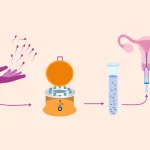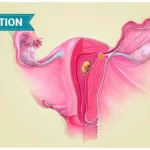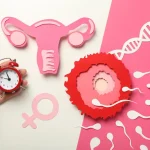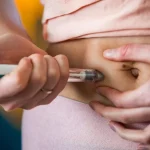How Long Does It Take to Get Pregnant Through IVF?
If you’ve started looking into in vitro fertilization (IVF), you already know it’s not an overnight process. Unlike natural conception, IVF involves a carefully structured medical journey with multiple stages, including medication, egg retrieval, fertilization, and embryo transfer. On top of that, timing depends on your health, fertility history, and how your body responds to treatment.
This blog will break down the IVF process timeline, explain how long each step takes, and outline the factors that can affect your chances of success. By the end, you’ll know what to realistically expect and when you might finally see those two pink lines on a pregnancy test.
What Is IVF and How Does It Work?

IVF stands for in vitro fertilization, a fertility treatment where eggs are collected from the ovaries, fertilized with sperm in a lab, and then transferred into the uterus. It’s a widely used option for individuals and couples dealing with infertility due to issues such as blocked fallopian tubes, low sperm count, unexplained infertility, or age-related challenges.
The Stages of IVF Treatment
1. Initial Consultation and Testing
Your IVF journey begins with consultations, fertility tests, and medical screenings. This stage ensures your doctor understands your reproductive health and can design a personalized treatment plan. Expect this stage to take 2–4 weeks.
2. Ovarian Stimulation (8–14 days)
Hormonal medications stimulate the ovaries to produce multiple eggs. During this phase, you’ll have frequent monitoring appointments with blood tests and ultrasounds.
3. Egg Retrieval and Fertilization (1–5 days)
Eggs are collected through a short outpatient procedure. They’re then fertilized with sperm in a lab. Embryos begin developing within hours, and most clinics monitor them for 3–5 days.
4. Embryo Transfer (Day 3–5 after fertilization)
One or more embryos are placed into the uterus. This is a quick, painless procedure similar to a Pap smear.
5. The Two-Week Wait (10–14 days)
This is often the hardest part emotionally. You’ll wait for a blood test that confirms whether or not implantation was successful. Each of these stages requires time and preparation, which is why IVF can take several weeks or even months from start to finish.
How Long Does a Full IVF Cycle Take?
A single IVF cycle usually takes 6 to 8 weeks from the first doctor’s appointment to the pregnancy test. Here’s a rough breakdown:
● Initial consultation and testing: 2–4 weeks for bloodwork, ultrasounds, and health assessments.
● Ovarian stimulation: 8–14 days of hormone injections to produce multiple eggs.
● Egg retrieval and fertilization: Retrieval is done in a single day; embryos are cultured for 3–5 days.
● Embryo transfer: Usually done 3–5 days after fertilization.
● Pregnancy test: 10–14 days after transfer.
This means that from the start of stimulation medications to a confirmed pregnancy test, you’re looking at roughly 4–6 weeks per cycle. However, preparation and recovery can extend the timeline.
How Many IVF Cycles Does It Take to Get Pregnant?
One of the most common questions couples ask is: How many cycles will it take before I get pregnant? The answer depends on several factors, including age, health, and fertility history.
● Women under 35: Success rates are highest, with about 40–50% achieving pregnancy within the first few cycles.
● Women aged 35–40: Success rates drop to about 20–30% per cycle.
● Women over 40: Chances are lower, around 5–10% per cycle, though using donor eggs can improve results.
Studies show that while one cycle may be successful, many people need 2–3 cycles to achieve a live birth. This is why patience and realistic expectations are so important when beginning the IVF journey.
IVF Success Rates and What Influences Them
Success with IVF in Nigeria isn’t just about the process — it’s also influenced by a variety of personal and medical factors:
● Age of the woman – The younger the eggs, the higher the success rate.
● Egg and sperm quality – Healthy reproductive cells improve embryo development.
● Uterine health – Conditions like fibroids or endometriosis may reduce chances.
● Lifestyle factors – Smoking, alcohol, stress, and poor diet can lower success.
● Previous pregnancies – A history of successful pregnancies can increase the odds.
Working with a skilled fertility clinic can help identify and address these factors, giving you the best chance at success.
Factors That Can Delay IVF Treatment
Even though a cycle can be completed in about 6–8 weeks, delays can occur due to:
● Medical conditions that need treatment before IVF (thyroid issues, PCOS, etc.)
● Scheduling conflicts with ovulation or clinic availability
● The need for additional procedures (such as hysteroscopy or genetic testing)
● Recovery time between failed cycles
For some couples, IVF may take several months to a year from start to pregnancy.
Emotional and Physical Challenges of IVF
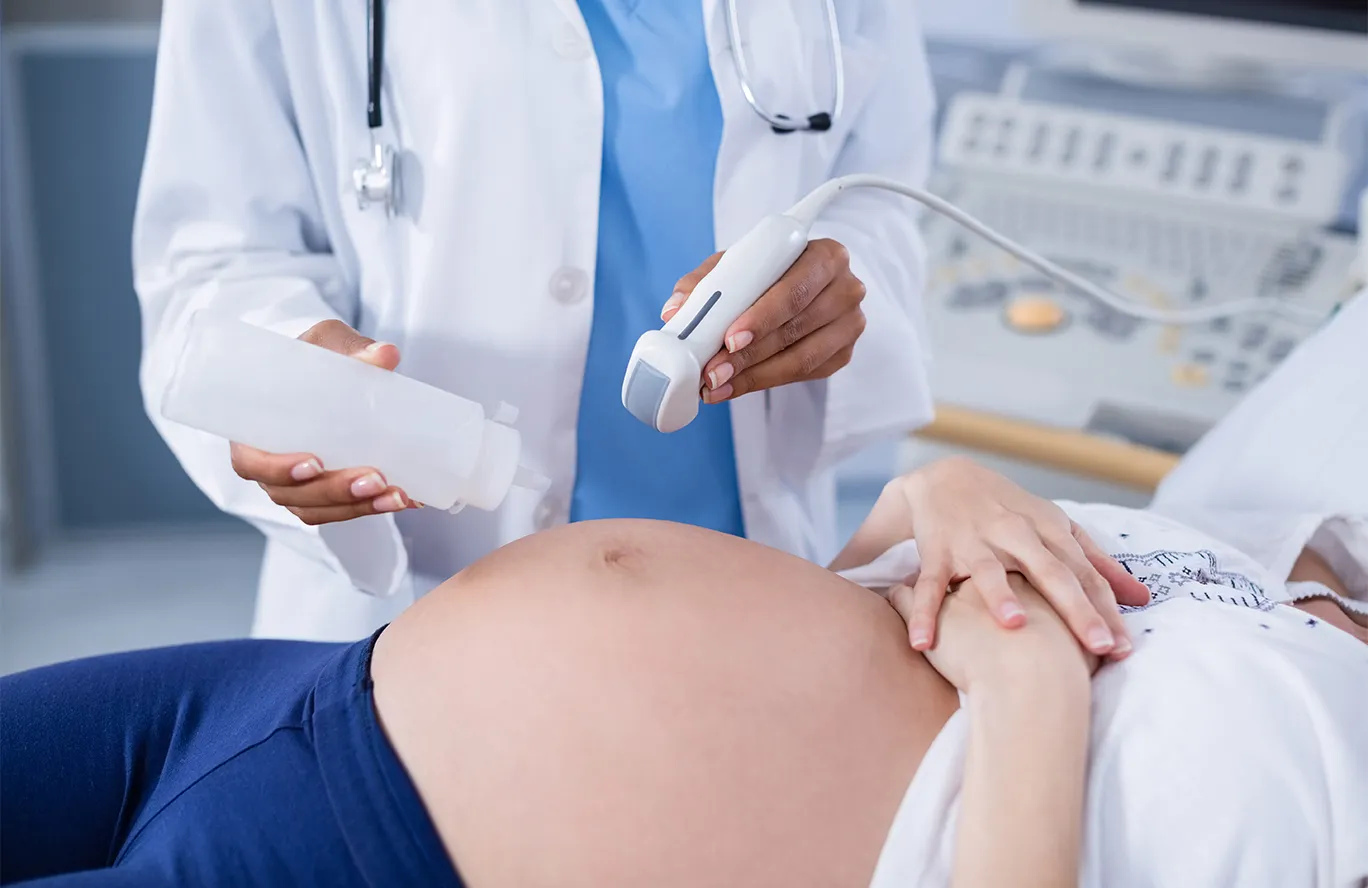
IVF isn’t just a medical process — it’s an emotional one too. The daily injections, frequent clinic visits, and uncertainty of outcomes can be overwhelming. Couples often experience stress, anxiety, and financial strain.
Support from counsellors, fertility support groups, or even close family and friends can help you navigate this journey. Remember, needing multiple cycles does not mean failure — it’s simply part of the process for many.
How to Improve Your Chances of IVF Success
While some factors are out of your control, you can take steps to optimize your chances:
● Maintain a healthy weight – Both underweight and overweight individuals may have reduced fertility.
● Eat a fertility-friendly diet – Focus on whole foods, lean protein, and antioxidants.
● Reduce stress – Practices like yoga, meditation, or therapy can help.
● Avoid smoking and alcohol – Both can lower egg and sperm quality.
● Follow your doctor’s instructions carefully – Proper medication timing is critical for success.
FAQ: IVF Timelines and Expectations
Can you get pregnant on the first IVF cycle?
Yes, it’s possible. Many couples do succeed on the first try, though most need multiple cycles.
How long does it take from egg retrieval to pregnancy test?
Typically, 3–4 weeks (stimulation, retrieval, embryo transfer, and then the 2-week wait).
Does age really make a difference in IVF success?
Absolutely. Egg quality declines with age, making early IVF attempts more likely to succeed.
Can IVF be faster if using donor eggs or sperm?
Yes, in many cases, using donor eggs or sperm can shorten preparation time and increase success rates.
Patience Pays Off With IVF
So, how long does it take to get pregnant through IVF? On average, one cycle lasts 6–8 weeks, but success often takes 2–3 cycles. For some, the journey is quicker, while for others it takes longer due to health or medical factors.
The important thing to remember is that IVF is not just a medical procedure — it’s a process that requires patience, emotional strength, and support. By working closely with your fertility specialist and making healthy lifestyle choices, you’ll give yourself the best chance at success. If you’re considering IVF and want expert guidance tailored to your journey, schedule a consultation with The Bridge Clinic’s IVF specialists today. With advanced technology, compassionate care, and high success rates, we’re here to help you turn your dream of parenthood into reality.
Follow us on our social media channels below:
Explore our related articles below:





